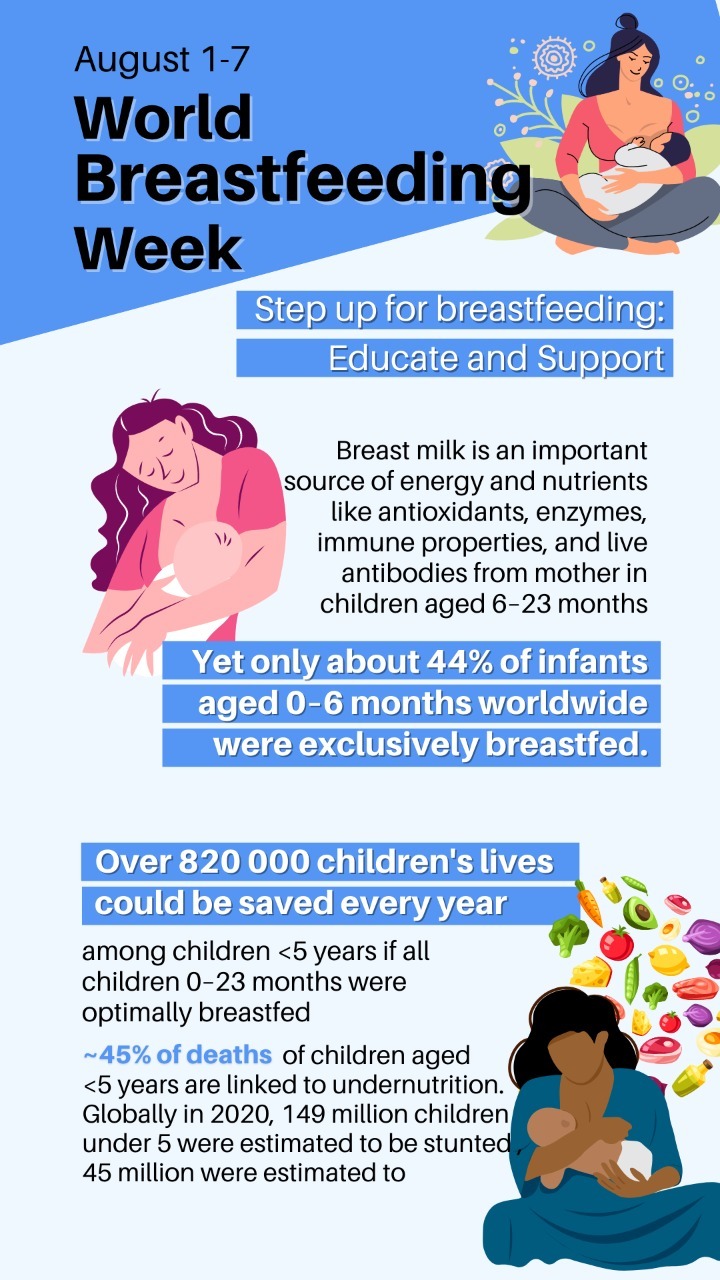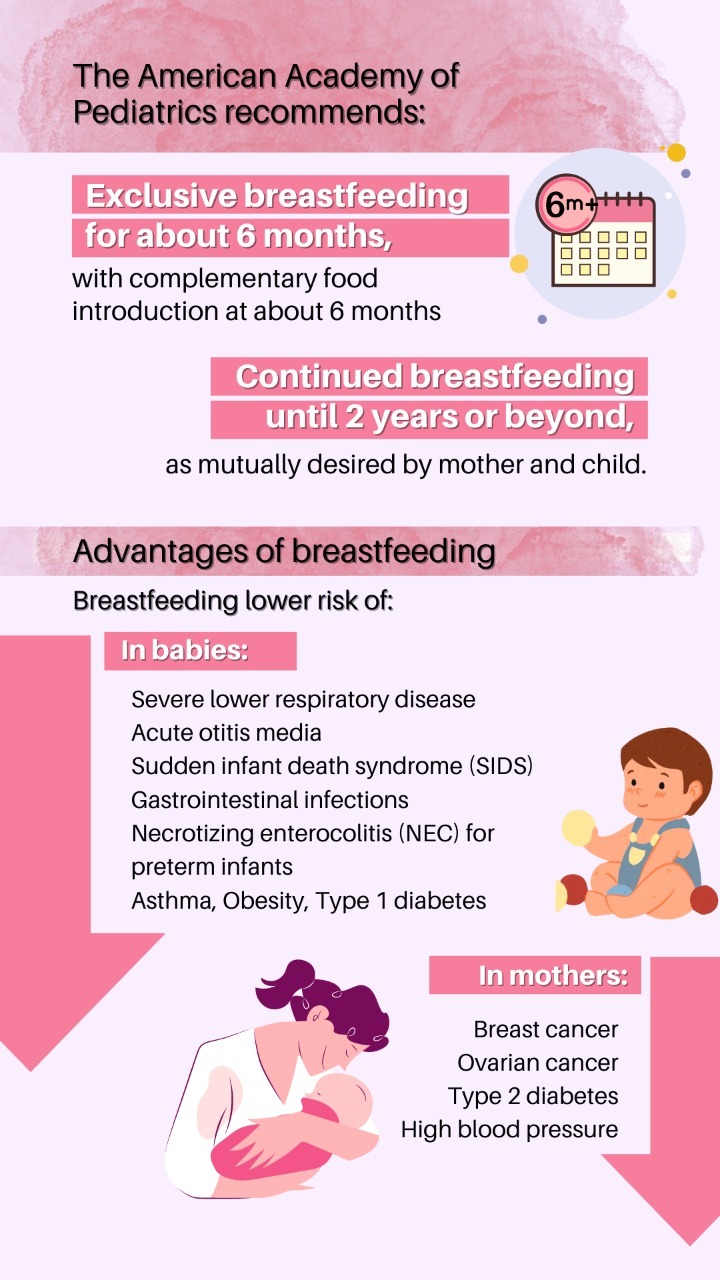Lifeline of Infancy: Raising Awareness during World Breastfeeding Week
M3 India Newsdesk Aug 06, 2022
This year's theme for world breastfeeding week is 'Step up for breastfeeding: Educate and support.' This article throws light on the advantages of breastfeeding, the latest AAP recommendations and the link between HIV and breastfeeding.
Breastfeeding
Breastfeeding is a natural act, but it is also a learned behaviour. Hospitals and health care practitioners should support all mothers to initiate breastfeeding as soon as possible after birth, within the first hour after delivery, and provide practical support to enable them to establish breastfeeding and manage common breastfeeding difficulties.
The AAP recommendations
The recommendations by the American Academy of Paediatrics AAP are as follows:
- Exclusive breastfeeding for the first 6 months. There is no need to introduce infant formula or other sources of nutrition for most infants. Beyond 6 months, breastfeeding should be maintained along with nutritious complementary foods.
- That birth hospitals or centres implement maternity care practices that improve breastfeeding initiation, duration, and exclusivity.
- Parents giving birth should be supported to breastfeed through early initiation of skin-to-skin contact and frequent breastfeeding, with skilled lactation support readily available in maternity care facilities.
- There are continued benefits from breastfeeding beyond 1 year, and up to 2 years especially in the mother. Hence AAP supports continued breastfeeding until 2 years or beyond, as mutually desired by mother and child.
- WHO recommends implementation of the "Ten Steps to Successful Breastfeeding" specified in the Baby-Friendly Hospital Initiative, including:
- Skin-to-skin contact between mother and baby immediately after birth and initiation of breastfeeding within the first hour of life
- Breastfeeding on demand (that is, as often as the child wants, day and night)
- Rooming-in (allowing mothers and infants to remain together 24 hours a day)
- Not giving babies additional food or drink, even water, unless medically necessary

Breast milk
Breast milk is the ideal food for infants. It is safe, clean, and contains antibodies which help protect against many common childhood illnesses. Breast milk provides all the energy and nutrients that the infant needs for the first months of life, and it continues to provide up to half or more of a child’s nutritional needs during the second half of the first year, and up to one-third during the second year of life.
Advantages of breastfeeding
Exclusive breastfeeding for 6 months has many benefits for the infant and mother. Babies who are breastfed have a lower risk of:
- Asthma
- Obesity
- Type 1 diabetes
- Severe lower respiratory disease
- Acute otitis media (ear infections)
- Sudden infant death syndrome (SIDS)
- Gastrointestinadiarrhoeaions (diarrhoea/vomiting)
- Necrotizing enterocolitis (NEC) for preterm infants
Children and adolescents who were breastfed as babies are less likely to be overweight or obese and perform better on intelligence tests and have higher school attendance. Mothers who breastfeed their babies have a lower risk of:
- Breast cancer
- Ovarian cancer
- Type 2 diabetes
- High blood pressure
It also helps space pregnancies since exclusive breastfeeding of babies under 6 months has a hormonal effect which often induces a lack of menstruation. This is a natural (though not fail-safe) method of birth control known as the Lactation Amenorrhoea Method.

HIV and breastfeeding
- HIV can pass from a mother to her child during pregnancy, labour or delivery, and also through breast milk.
- The evidence on HIV and infant feeding shows that giving antiretroviral treatment (ART) to mothers living with HIV significantly reduces the risk of transmission through breastfeeding and also improves their health.
- WHO now recommends that all people living with HIV, including pregnant women and lactating mothers living with HIV, take ART for life from when they first learn their infection status.
Breast milk provides abundant and easily absorbed nutritional components, antioxidants, enzymes, immune properties, and live antibodies from the mother. The significance and advantages of breastfeeding should therefore be discussed with and supported among mothers.
Disclaimer: This article has been previously published on the DailyRounds platform.
-
Exclusive Write-ups & Webinars by KOLs
-
Daily Quiz by specialty
-
Paid Market Research Surveys
-
Case discussions, News & Journals' summaries